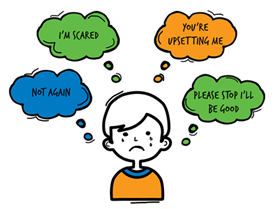All relationships go through ups and downs. It is normal to disagree sometimes. Parenting is hard work and can be a lot of pressure for everyone involved.
Looking after your relationship is important for your own wellbeing and for your children. Some of the common problems in parental relationships are a lack of time and tiredness. This leads to mix-ups and poor communication. Giving some attention to these things can improve your relationship, no matter other stresses you may have. You, your partner and your children all benefit when you look after your relationship.
Learning how to share how you feel, and listen to how others feel even when you disagree, is a good skill. If children get to see this, it models for them how relationships can work even in harder times.
Time
It can be hard to find the energy to give time to your relationship when you have the demands of a young family to deal with. Finding even a few moments to take notice of each other and check how you are feeling will make a difference.
Being with children all day is tiring and so is going to work. A lot of parents are doing one, the other or both of these things. Make some allowances for each other and look at things from each others point of view.
Try and give each other small breaks to rest and have some head space. It doesn’t have to be for long – even ten minutes drinking a cup of tea in peace whilst the other parent baths the children or plays in the garden can help. It shows that you appreciate the pressures on each other.
Try and have good bedtime routines not just for the children but for you too.
Try and get exercise every day – it can be a fast walk or an activity that gets your heart beating a bit faster.
Communication
Being able to talk about your feelings and listen to the feelings of your partner is very important in being able to get along together. When we avoid talking about things that are bothering us it can make us feel cross and irritable.
Make time to talk. Ideally choose a time when you can calmly talk about your feelings rather when something has just upset you. If you are feeling angry – try and take time to calm down before you react.
If you do snap – notice this in yourself and walk away. Remember to say sorry for how you acted. Your children are watching and learning from you.
Listening To Each Other
Listening is as important as talking to settle a problem.
Focus On The Positives
When your relationship feels difficult, it can be easy to forget to notice and talk about the good things.
Parental Conflict
Whilst every relationship goes through difficult times, if children are around arguments and conflict regularly it is harmful to them.
 Children who are around conflict, notice it. Even if they seem too little, or are in bed, or in another room they will know. Children are very tuned in to the world around them. They can be scared and worried when their parents aren’t getting on.
Children who are around conflict, notice it. Even if they seem too little, or are in bed, or in another room they will know. Children are very tuned in to the world around them. They can be scared and worried when their parents aren’t getting on.
If the arguments carry on, counselling support can make a difference. You can go together or separately. It can give you time and space to work out how to improve your relationship. You might decide the relationship is over. Relationship counsellors can help you manage this as well as possible for you and your children.
Domestic Abuse
Sometimes relationships are not healthy and the relationship is abusive. It can be very hard to accept your relationship is unsafe for you and for your child.
Growing up around domestic abuse can cause long-term harm to children and young people. Those who have experienced growing up around abusive relationships are more likely to be abused or abuse others when they grow up.
They are more likely to experience behavioural problems, low confidence, anxiety and depression. This can affect them throughout their lives.
When a parent is able to leave an abusive relationship the children quickly benefit from a calmer, safer home. There are services to help you and them recover from what they have experienced.
Often it takes time to come to a decision to leave an abusive relationship. If you are thinking about leaving it is a good idea to make a safety plan to make sure you are as safe as possible.
Call 999 if you, or someone you know is in immediate danger.
If you cannot make voice calls, you can now contact the 999 emergency services by SMS text from your mobile phone. Emergency SMS is part of the standard 999 service which has been designed specifically for people with hearing loss or difficulty with speech.
You can contact the Healthy Child Programme by calling Just One Number on 0300 300 0123 or texting Parentline on 07520 631590. Our opening hours are 8am-6pm Monday-Friday (excluding bank holidays) and 9am-1pm on Saturdays.
Living Well with Baby Webinar - Workshops for parents and carers with a baby, where the stresses of the parenting role is impacting on their wellbeing.
You can contact the National Domestic Violence Helpline 24/7 by calling 0808 200 0247.They can offer advice and guidance and find refuge if necessary.
You can contact Leeway by calling 0300 561 0077 for help and advice.
To speak to other Norfolk parents and carers, you can join our online community forum below.